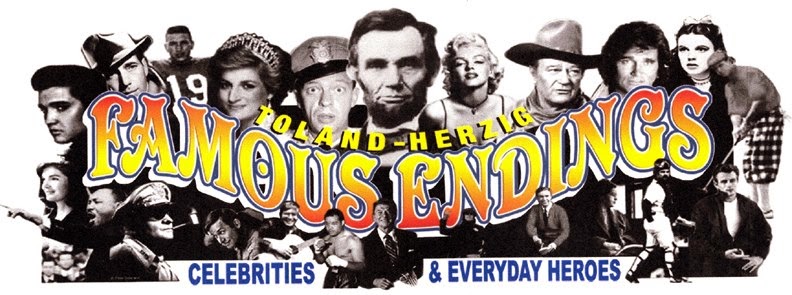 Vidal's major interest was writing about America and was an outspoken critic of our foreign policy. He was known for bumping heads with conservatives like William Buckley, Norman Mailer, and Truman Capote. He believed that America began deteriorating in the 80's and continues its downward decline.
Vidal's major interest was writing about America and was an outspoken critic of our foreign policy. He was known for bumping heads with conservatives like William Buckley, Norman Mailer, and Truman Capote. He believed that America began deteriorating in the 80's and continues its downward decline. Vidal was born in the Cadet Hospital at West Point where his father was a first lieutenant and an aeronautics instructor at the United States Military Academy and then served as director of the Commerce Department's Bureau of Air Commerce during the Roosevelt administration. His mother did some work on Broadway as an extra. He was raised in Washington D.C. and was around the political culture and developed his ideas through his life experiences.
Over the years, Vidal published 25 novels, two memoirs, and numerous essays. He wrote plays, television dramas and screenplays.
He twice ran for public office and was also an occasional actor having appeared in the animated form in "The Simpsons" and "Family Guy" and had a role in the movie version of his own play called "The Best Man." He was a regular on The Tonight Show Starring Johnny Carson
 His writing includes the screenplay of "Ben-Hur" where he won an Academy Award for Best Picture. His well known writing include "Julian" "Burr" and "Lincoln"that were historical novels and his novel "The City and the Pillar" caused outrage with conservatives. He might best be remembered for his social novel "Myra Breckinridge"
His writing includes the screenplay of "Ben-Hur" where he won an Academy Award for Best Picture. His well known writing include "Julian" "Burr" and "Lincoln"that were historical novels and his novel "The City and the Pillar" caused outrage with conservatives. He might best be remembered for his social novel "Myra Breckinridge"Gore Vidal died one year ago, on July 31, 2012 from complications from pneumonia at the age of 86 at his home in Hollywood Hills, California. At the time of his death, Vidal is considered the last of a generation of American writers who had served during World War II.
 Following Gore Vidal's death, a celebration of his life took place at the Gerald Schoenfeld Theatre (program pictured was given to John Herzig by NYC's columnist Liz Smith who spoke at his service). The tribute to Vidal was hosted by Dick Cavett and, along with Liz Smith, other speakers included Hillary Clinton, James Earl Jones, Cybill Shepherd, Susan Sarandon, and Candice Bergen.
Following Gore Vidal's death, a celebration of his life took place at the Gerald Schoenfeld Theatre (program pictured was given to John Herzig by NYC's columnist Liz Smith who spoke at his service). The tribute to Vidal was hosted by Dick Cavett and, along with Liz Smith, other speakers included Hillary Clinton, James Earl Jones, Cybill Shepherd, Susan Sarandon, and Candice Bergen. Gore Vidal was laid to rest by his partner for more than half a century, Howard Auster in the Rock Creek Cemetery in Washington D.C. and Vidal's grave is a few steps from a young boy he idolized in school by the name of James Trimble who was killed in World War II by a Japanese suicide bomber at the age of 19.













.JPG)


































